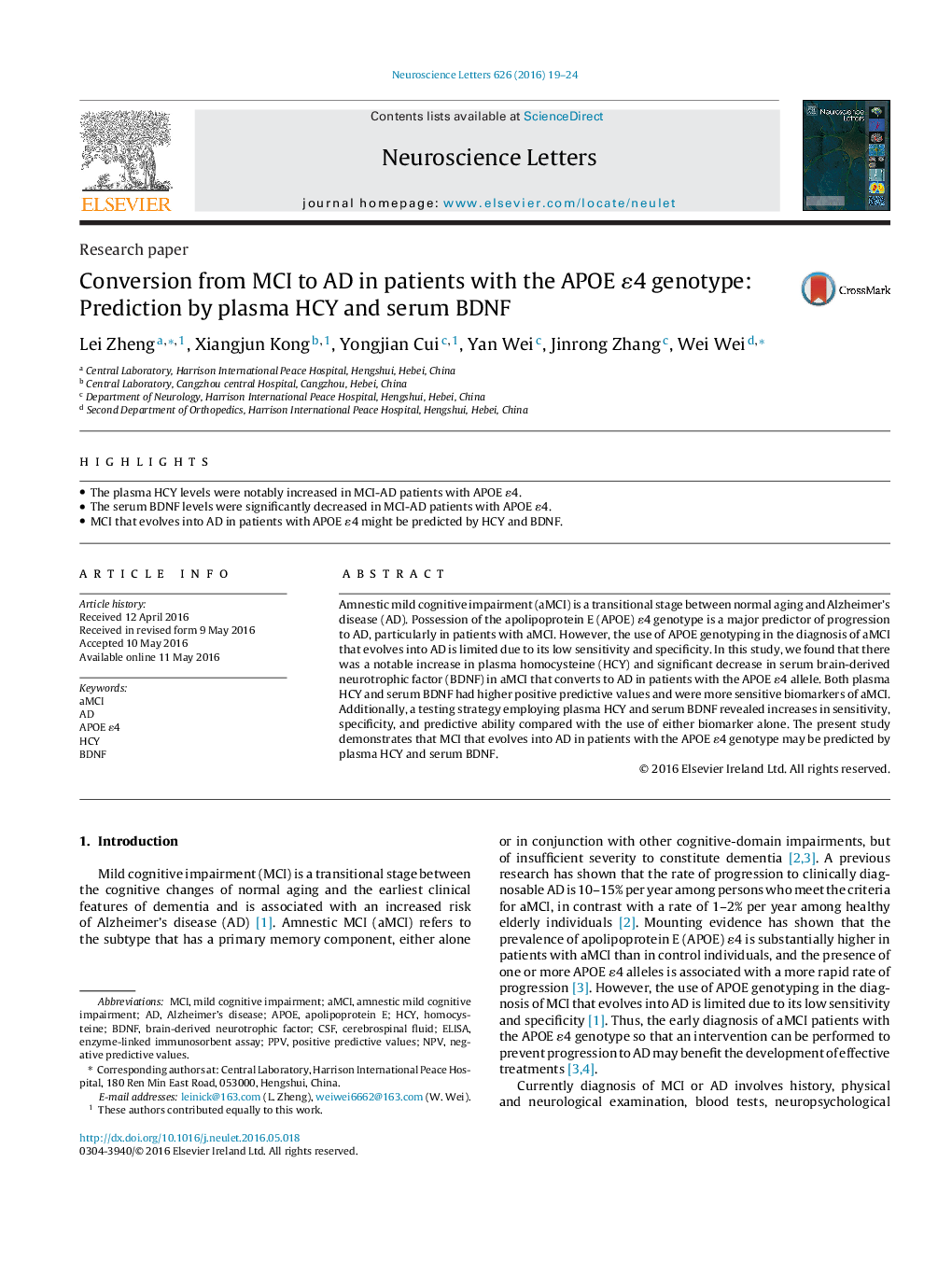| کد مقاله | کد نشریه | سال انتشار | مقاله انگلیسی | نسخه تمام متن |
|---|---|---|---|---|
| 4343175 | 1615073 | 2016 | 6 صفحه PDF | دانلود رایگان |

• The plasma HCY levels were notably increased in MCI-AD patients with APOE ε4.
• The serum BDNF levels were significantly decreased in MCI-AD patients with APOE ε4.
• MCI that evolves into AD in patients with APOE ε4 might be predicted by HCY and BDNF.
Amnestic mild cognitive impairment (aMCI) is a transitional stage between normal aging and Alzheimer’s disease (AD). Possession of the apolipoprotein E (APOE) ε4 genotype is a major predictor of progression to AD, particularly in patients with aMCI. However, the use of APOE genotyping in the diagnosis of aMCI that evolves into AD is limited due to its low sensitivity and specificity. In this study, we found that there was a notable increase in plasma homocysteine (HCY) and significant decrease in serum brain-derived neurotrophic factor (BDNF) in aMCI that converts to AD in patients with the APOE ε4 allele. Both plasma HCY and serum BDNF had higher positive predictive values and were more sensitive biomarkers of aMCI. Additionally, a testing strategy employing plasma HCY and serum BDNF revealed increases in sensitivity, specificity, and predictive ability compared with the use of either biomarker alone. The present study demonstrates that MCI that evolves into AD in patients with the APOE ε4 genotype may be predicted by plasma HCY and serum BDNF.
Journal: Neuroscience Letters - Volume 626, 28 July 2016, Pages 19–24